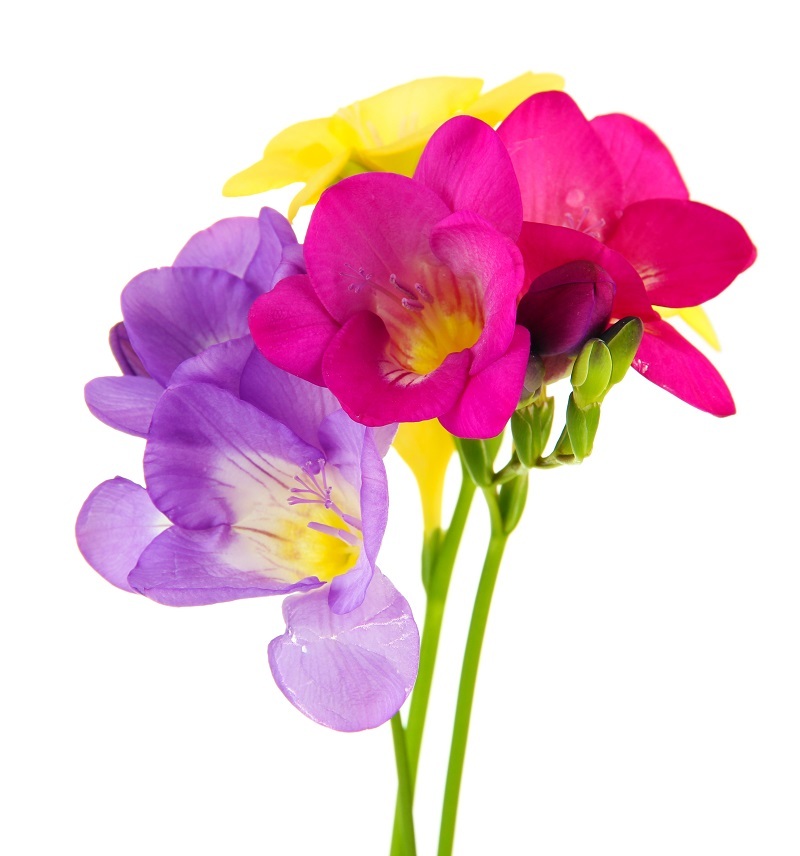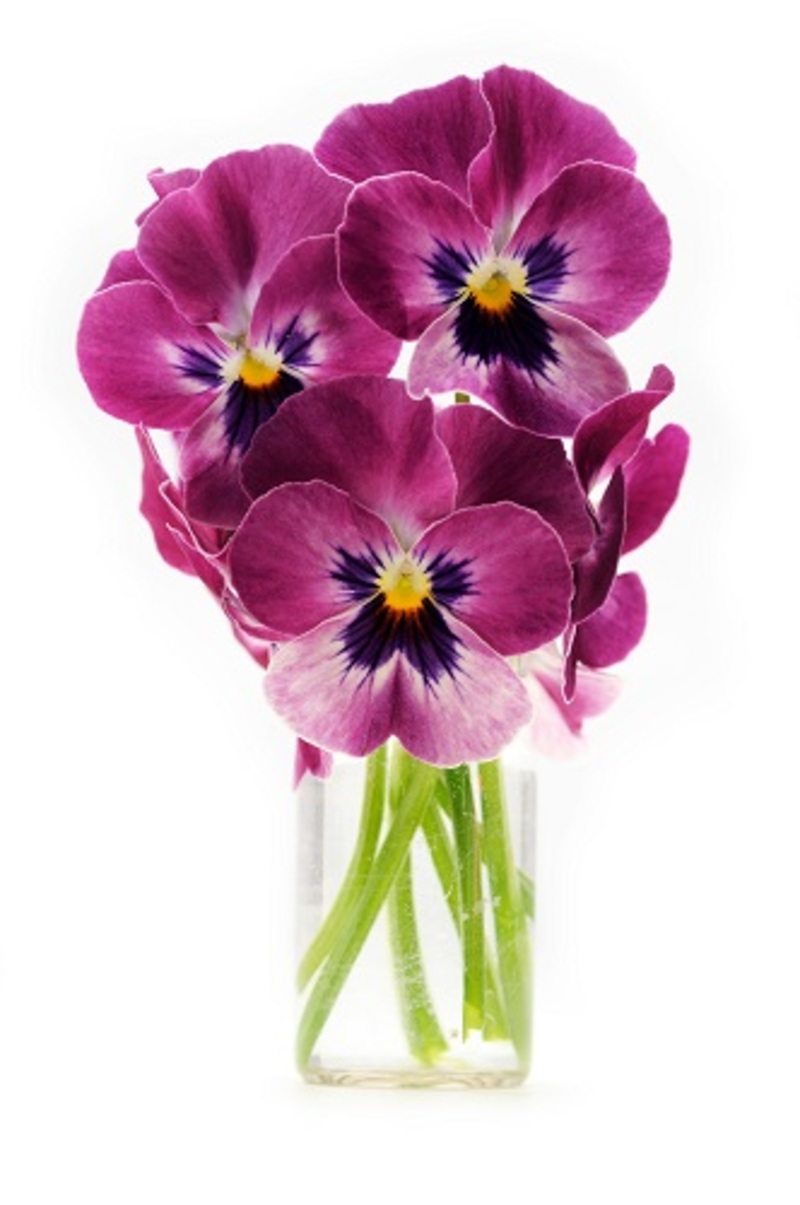What Does Your Birth Flower Reveal About You
Posted on 17/08/2025
What Does Your Birth Flower Reveal About You? An In-Depth Guide
Everyone knows their birthstone, but have you ever wondered, "What does your birth flower reveal about you?" While gemstones get most of the attention, birth flowers carry their own unique significance, steeped in symbolism, personality traits, and historic meanings. In this comprehensive and SEO-optimized article, we'll explore how each birth flower is a window into your unique character, personal energies, and even your destiny.

Understanding the Concept of Birth Flowers
Birth flowers associate each month of the year with a specific bloom, much like zodiac signs or birthstones. Originating from the Victorian era's "language of flowers," birth flowers were used to convey hidden messages and express emotions. Today, learning what your birth flower says about you can reveal fascinating insights about your personality, your approach to life, and even your relationships.
The Origins of Birth Flower Meanings
Assigning flowers to months and people isn't new. Ancient Romans associated specific flowers with deities and ceremonies, while Victorians gave elaborate meanings to flowers in bouquets--known as floriography. These centuries-old traditions have evolved into the designated birth month flowers we recognize today, each with its own symbolism and secrets.
List of Birth Flowers by Month and What They Reveal
Let's look at what your birth flower reveals about you based on each month. Discover which flower belongs to your birth month and what it says about your personality and spirit.
January: Carnation & Snowdrop
- Carnation: Symbolizes admiration, love, grace, and distinction. If you're a January baby, you likely exude strength, loyalty, and a graceful presence. You have determination and a natural ability to be a trustworthy friend.
- Snowdrop: Associated with hope and rebirth, snowdrops reveal resilience and enduring spirit, making you someone who brings light even in the darkest times.
February: Violet & Iris
- Violet: Represents modesty, faithfulness, and humility. Those born under violet's influence are often gentle, dependable, and creative souls with a serene inner life.
- Iris: Stands for wisdom, courage, and admiration, suggesting you possess remarkable insight and are looked up to for advice.
March: Daffodil
- Daffodil: Signifies renewal, rebirth, and new beginnings. If March is your birth month, you bring optimism and cheer wherever you go, much like the first flower of spring. You're known for your generosity and natural charm.
April: Daisy & Sweet Pea
- Daisy: Denotes innocence and purity, as well as true love. April-borns tend to be open-minded, positive, and endlessly hopeful, with a knack for making the best of any situation.
- Sweet Pea: Associated with delicate pleasure and gratitude, indicating you're caring, sensitive, and deeply appreciative of life's joys.
May: Lily of the Valley & Hawthorn
- Lily of the Valley: Symbolizes sweetness, humility, and a return to happiness. May natives are gentle, affectionate, and compassionate, bringing comfort to those around them.
- Hawthorn: Stands for hope and supreme happiness, marking you as someone who is optimistic and resilient.
June: Rose & Honeysuckle
- Rose: Epitomizes love, passion, and beauty. If you are born in June, you are charismatic, passionate, and have a deep love for life. Different rose colors add layers to your personal symbolism: red for love, white for purity, yellow for friendship, and so on.
- Honeysuckle: Associated with happiness and devoted affection, you are likely loyal, sweet-natured, and attract friendship and joy.
July: Larkspur & Water Lily
- Larkspur: - Signifies positivity, dignity, and a playful spirit. July-borns are generally open-hearted and full of charisma, always making friends wherever they go.
- Water Lily: Represents purity and majesty, suggesting inner strength and serenity run deep within you.
August: Gladiolus & Poppy
- Gladiolus: - Symbolizes integrity, strength of character, and persistence. If you're an August baby, you're a natural leader, often admired for your courage and strong convictions.
- Poppy: Represents imagination and remembering loved ones, indicating a creative soul and someone with deep emotional ties.
September: Aster & Morning Glory
- Aster: Stands for wisdom, love, and faith. September-borns are thoughtful, patient, and valued for their insightful advice.
- Morning Glory: Symbolizes affection and the fleeting nature of love, meaning you approach relationships with appreciation, grace, and heartfelt sincerity.
October: Marigold & Cosmos
- Marigold: Known for creativity, passion, and warmth. October-born personalities are vibrant, energetic, and fearless in expressing themselves.
- Cosmos: Represents harmony and order, showing that you value balance and have a calming effect on others.
November: Chrysanthemum
- Chrysanthemum: Epitomizes loyalty, friendship, and cheerfulness. If you're born in November, you are generous, honest, and bring warmth with your presence. In many cultures, chrysanthemums are a symbol of long life and happiness.
December: Narcissus & Holly
- Narcissus: Stands for hope, good wishes, and respect. December-born individuals are optimistic, inspiring, and bring a sense of renewal to those around them.
- Holly: Symbolizes defense and domestic happiness, often seen as trustworthy and protective by nature.
How to Embrace the Meanings of Your Birth Flower
Now that you understand what your birth flower says about you, how can you incorporate its positive energy and symbolism into your everyday life? Here are a few creative ways:
- Wear jewelry or clothing featuring your birthday flower to harness its energy daily.
- Cultivate your birth flower in a garden or keep a potted version indoors as a reminder of your natural strengths.
- Give gifts--such as bouquets--with someone's birth flower on special occasions for a personal and meaningful touch.
- Use art and decor with your flower's image to create a personalized living or workspace.
- Reflect on your flower's symbolism during meditation or as inspiration for journaling and goal-setting.
The Cultural and Global Impact of Birth Flowers
Did you know that birth flower meanings vary across the globe? In Japan, cherry blossoms are treasured, while chrysanthemums represent longevity and are used in imperial crests. The Victorians viewed flowers as eloquent surrogates for expressing feelings that couldn't be spoken aloud. Discovering the symbolism of your birth flower can connect you with cultural history and universal human emotions.
Birth Flowers in Astrology and Spirituality
Your birth flower's symbolism also overlaps with astrology and numerology, providing another layer of personality analysis. For example, a Leo born in August is further associated with the gladiolus--highlighting both zodiac fire and floral bravery. This synergy offers a more comprehensive picture of who you are.
Frequently Asked Questions About Birth Flowers
1. Are birth flowers and birthstones connected?
No, but both are personalized to your birth month. Birthstones have mineral properties, while birth flowers reveal personality traits and convey emotional guidance.
2. Is there scientific evidence that birth flowers affect personality?
While there's no formal science, the symbolic language of flowers resonates with cultural heritage, psychology, and even holistic practices. Many find that aligning with their flower's meaning helps with self-awareness and positive living.
3. Can I have more than one birth flower?
Absolutely! Some months feature two or even three official flowers, each with unique meanings. For example, April boasts both daisy and sweet pea, allowing you to embrace a richer array of personality traits.
4. Can your favorite flower reveal more than your birth flower?
Yes. While birth flowers have traditional meanings attached to your birth month, your favorite flower may connect with your aspirations, tastes, and phases of life. Understanding flower symbolism can help you express yourself more fully.
Why Knowing What Your Birth Flower Reveals Matters
Exploring what your birth flower says about you isn't just fun--it's enlightening. Learning about your birth flower can:
- Enhance your self-awareness
- Guide your personal growth journey
- Strengthen relationships by offering insight into those around you
- Deepen your connection with cultural heritage
- Add meaning to gift-giving, celebrations, and even decor choices

Birth Flowers and Modern-Day Celebrations
Today, birth flower meanings infuse birthdays, anniversaries, weddings, and major holidays with deeper significance. Gifting a bouquet that includes a person's birth flower is seen as profoundly thoughtful and personal. Brides often choose birth flowers for their wedding bouquets to symbolize love, luck, and new beginnings. Understanding your birth flower's significance empowers you to celebrate yourself and others in creative ways.
Innovative Ideas for Including Birth Flowers in Your Life
- Create a birth flower garden with blooms representing your whole family for a living legacy.
- Customize jewelry or tattoos with your flower's unique form for a personal touchstone.
- Make fragrance blends or candles inspired by your flower's scent to enhance your home atmosphere.
- Use birth flowers in scrapbooking or photo albums to commemorate special moments with symbolic meaning.
Final Thoughts: Embrace What Your Birth Flower Says About You
Whether you're a rosy June romantic, a courageous August gladiolus, or a hopeful December narcissus, understanding what your birth flower reveals about you adds depth to your self-understanding. These blooms offer a poetic lens through which to view your talents, emotional gifts, and place in the world.
So, what does your birth flower reveal about you? Grab a bouquet, look up your designated bloom, and discover the vibrant symbolism waiting to inspire you. Let your birth flower meanings color your life with beauty, tradition, and insight every day.
Latest Posts
Explore resilient plants perfect for busy office life
Learn to Extend the Life of Cut Flowers with Ease
The Perfect Petal Match for Your Personality Awaits







